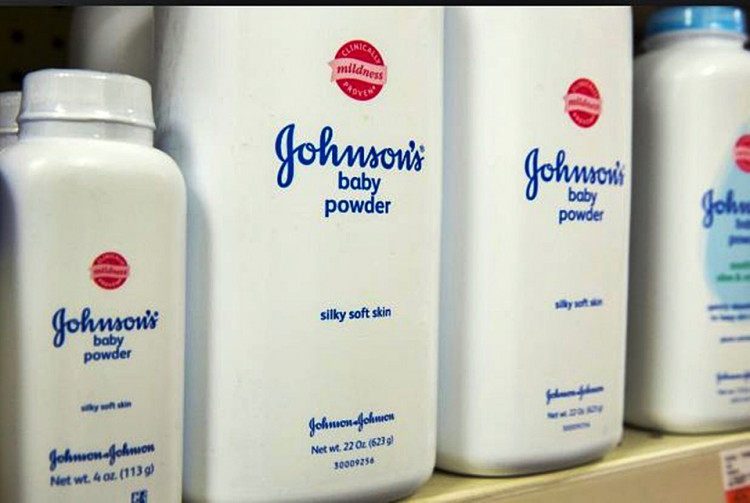Embattled healthcare and consumer products giant Johnson & Johnson lost its motion to overturn a $4.7 billion jury verdict awarded to women who blamed their ovarian cancer on asbestos in the company's baby powder and other talc products.
In July, a jury in St. Louis, Missouri awarded the women $4.14 billion in punitive damages and $550 million in compensatory damages. The cases tried in St. Louis is the first to allege asbestos-contaminated talc causes ovarian cancer.
Missouri Circuit Court Judge Rex Burlison ruled there is "substantial evidence" of "particularly reprehensible conduct" by Johnson & Johnson. He said company executives "knew of the presence of asbestos in products that they knowingly targeted for sale to mothers and babies, knew of the damage their products caused, and misrepresented the safety of these products for decades."
The women successfully claimed their decades' long use of Johnson's baby powder and other cosmetic talc products caused their illness. They allege Johnson & Johnson knew its talc was contaminated with asbestos since the 1970s but deliberately failed to warn consumers about the risks.
The majority of the thousands of lawsuits Johnson & Johnson faces involve claims that talc itself caused ovarian cancer. On the other hand, a smaller number of cases alleging that contaminated talc caused mesothelioma, a tissue cancer closely linked to asbestos exposure.
A damning investigative report by Reuters last week revealed that Johnson & Johnson knew full well about carcinogens in its baby powder since the 1970s but kept this horrific fact from U.S. regulators and the general public.
The Reuters report affirms that "Johnson & Johnson knew for decades that asbestos lurked in its baby powder." It discovered that from at least 1971 to the early 2000s, Johnson & Johnson knew its raw talc and finished powders sometimes tested positive for small amounts of asbestos.
It also found that company executives, mine managers, scientists, doctors, and lawyers "fretted over the problem and how to address it while failing to disclose it to regulators or the public."
Shares of Johnson & Johnson fell one percent to $129 a share in Tuesday afternoon trading. The stock has sunk almost 13 percent so far this month, putting it on track for its worst month since February 2009.
Johnson & Johnson has lost more than $50 billion in market value since Reuters published its damning investigative story on Friday with The New York Times publishing an equally scathing piece over the weekend.
As usual, the company denies its talc products cause cancer or that they ever contained asbestos. It claims decades of studies show its talc to be safe. It noted it's successfully overturned previous talc verdicts on technical legal grounds.






